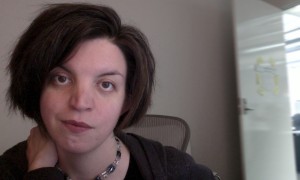Digesting Wetlands
This paper begins with Natalie Jeremijenko’s Cross(x)Species Adventure Club, a series of supper club meals addressing specific ecological topics, including oil spills and multispecies encounter.I read this work alongside histories of molecular gastronomy and evolving theories of the human microbiome to analyze how figuring and imaging science moves from the dinner plate through the digestive system. For Jeremijenko, molecular gastronomy allows for complex foods that address complex problems. The technoscience mediation made visible in molecular gastronomy models an interventionist environmentalism that may be scaled up to create new wetland environments to better “digest” oil spills. Digestion becomes a way of figuring the landscape and encountering animals, plants, and environmental systems, with molecular gastronomy techniques providing metaphoric and literal frameworks for imagining how bodies and landscapes interrelate. Imagining wetland environments as digestive organs invites us to imagine our digestive systems as environments, landscapes, and ecologies. Attention to the visual cultures of the very small often employs language that evokes the very large, with individual human microbiomes described as islands, figured as territory to be explored. Often referred to as an “ecology” or an “ecosystem,” the human microbiome has been productively analyzed with ecological theory. Rather than taking a territorial or colonial approach to the human microbiome, I would suggest the cloud and metaphors of atmospheric shift, drift, and blooming open up a field of action and intervention where plants and animals converge in our understanding of how our bodies cooperate with a changing population of bacteria, viruses, and fungi.
Lindsay Kelley’s art practice and scholarship explore how the experience of eating changes when technologies are being eaten. She is working on her book, The Bioart Kitchen, which emerges from her work at the University of California Santa Cruz (Ph.D in the History of Consciousness and MFA in Digital Art and New Media). Kelley is an International Research Fellow at the Center for Fine Art Research, Birmingham City University and a Lecturer at the College of Fine Arts, University of New South Wales.
